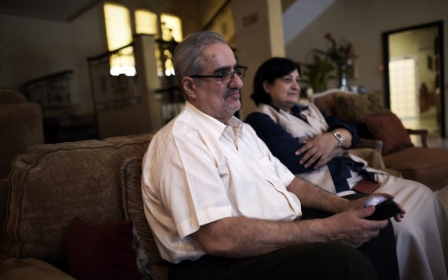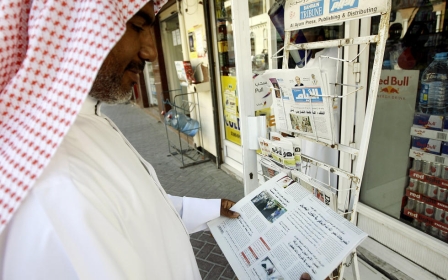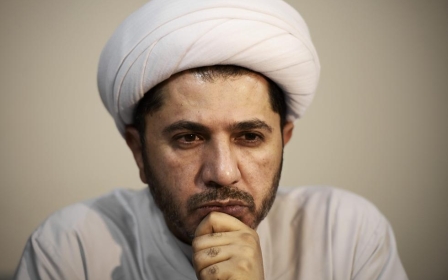UK risks British businesses by backing Bahrain

The UK’s Foreign and Commonwealth Office (FCO) recently published its Overseas Business Risk (OBR) report on Bahrain. Analysing British business potential in the kingdom, the report concluded that “Bahrain is an important partner and base for UK companies in the Gulf given its position as a major trading hub in the region”.
Factors such as strong economic growth, positive political reforms and an increasingly diversified economy are “good fundamentals” for investor confidence, it said.
Yet with continued political unrest, falling oil prices, increasing government debt and unethical business practises, are British businesses being put at risk in Bahrain?
Political instability to continue for years
The political overview of Bahrain given by the FCO is highly positive. The 2014 elections are argued to have been “transparent,” and the report expresses disappointment at the refusal by opposition parties to participate.
Such statements run, however, in complete contradiction to the views of independent observers: Freedom House, a Washington-based think tank said to be close to the US State Department, notably listed Bahrain as “not free” and gave the country’s political rights the lowest possible rating.
Even within Westminster, the Foreign Affairs Committee (FAC) has continually called upon the FCO to “bite the bullet” and list Bahrain as a “Country of Concern”, on the basis that it found no evidence of any political reform or human rights safeguards in the country. It later described the FCO’s unwillingness to do so as a decision “politically coloured”.
In terms of the elections, not only does Freedom House argue that “grave flaws,” including electoral manipulation, render the elections neither free nor fair, but points to the fact that all of the major opposition leaders are still in prison.
The FCO report also demeans the wide-scale 2011 pro-democracy protests as mere “discontent and unrest within parts of the Shia community”. Reducing it to a one-faceted issue of sectarianism, the report fails to acknowledge the wider grievances held by both Sunnis and Shia Bahrainis alike.
The re-arrest of the secular Sunni opposition leader Ibrahim Sharif highlights the fallacy of the FCO’s position, and yet, whilst the US government had condemned the arrest, the FCO has chosen to keep silent.
Since February 2011, when protests erupted in the capital Manama, at least 130 individuals have been killed, more than 3,500 have been arbitrarily arrested, and at least 180 have had their nationality stripped by Bahraini authorities.
Rather than recognising the deteriorating situation in Bahrain, the UK government has described Manama as “moving in the right direction,” and cited the establishment of the Bahrain Independent Commission of Inquiry (BICI) as a key example of positive reform.
The FCO has also suggested that Bahraini authorities have implemented “many” of the 26 recommendations for reform made by the BICI.
Yet this conclusion runs in complete contradiction with statement from the BICI’s own chairman, who has described the government’s implementation of the recommendations as “piecemeal” and the overall approach as a “whitewash”. With systematic torture, arbitrary arrests and disappearances continuing, The Economist has predicted that the political scene will “remain unstable” for at least the next four years until 2019.
Not only have 50 individuals been killed by government forces since the BICI report’s publication on 23 November 2011, but new laws outlaw political demonstrations and subject citizens to up to seven years imprisonment for “insulting the King”. Major human rights defenders, including Abdulhadi al-Khawaja and Abduljalil al-Singace, have been arbitrarily arrested and tortured.
Prison conditions and the ill-treatment of detainees have been the subject of severe scrutiny from international NGOs, but despite the recommendations of the BICI, no government official has been held accountable for involvement in torture.
Bahrain to run out of power
Despite clear political unrest, Bahrain is described by the FCO as “a good place to do business,” on account of its steady growth rates and liberalised, business-friendly economy. In terms of overall growth and gross domestic product (GDP), the report claims that the economy has been expanding consistently over the past five years and suggests that the outlook is “largely positive”. However, despite being the most diversified economy in the six-nation Gulf Cooperation Council, Bahrain’s over-reliance on oil continues to damage growth and business profitability.
Whilst non-oil sectors are growing in Bahrain, the oil and gas sector still accounts for around 20 percent of GDP, and the International Monetary Fund has found “limited progress toward diversification”. With oil prices having fallen by 45 percent between 2014 and 2015, the growth of Bahrain economy is slowing down significantly.
As a result, Bahrain’s break-even price for oil has increased to $125 per barrel. According to the London School of Economics, break-even now lies above current oil prices for Bahrain, leading to a situation where eventually the country will “run out of power”.
This negative outlook has caused Moody’s to downgrade Bahrain’s credit rating from Baa2 to Baa3.
Not only are market volatilities positively correlated amongst industries in Bahrain, but government fiscal power is tied to the value of oil. Typically governments can increase spending to stimulate the economy and protect against slowdowns; however, in the case of Bahrain, government reserves have been in continuous deficit since 2009, averaging at minus 4 percent of GDP.
As oil reserves are the largest contributor to government finances at around 90 percent, fiscal flexibility is significantly limited.
The future outlook for the kingdom is therefore bleak, with Moody’s in April predicting that the kingdom’s rapid increase in spending will lead the government’s debt burden to increase to more than 70 percent of GDP by the end of 2016.
Institutionalised discrimination
The FCO report includes a section on “Business and Human Rights”, which is highly misleading in describing Bahrain’s 2012 Labour Law for the Private Sector No36 as “conforming much more closely to international standards,” in “granting employees considerably more rights”.
A report by Human Rights Watch found that not only is the law poorly applied in practice, it also fails “to address the most common abusive practice of excessive work hours” for migrant workers.
Furthermore, to suggest there is “a greater provision for anti-discrimination rules” completely overlooks that Shia Bahrainis still “occupy less than 18 percent of total top jobs in government establishments,” according to the Bahrain Centre for Human Rights, and that jobs in the police and armed forces are only open to Sunni Bahrainis.
This institutionalised discrimination in Bahrain needs to be acknowledged by the FCO, as it significantly exacerbates sectarian tensions.
The FCO report is also incorrect in stating that “the law covers every person who is legally employed”. As clearly outlined within Article II, “the provisions of this law shall not be applicable to domestic servants and persons regarded as such, including agricultural workers, security house-guards, nannies, drivers and cooks”.
Migrant workers make up around 77 percent of the workforce, most of whom are in highly vulnerable temporary work, which is low-skilled, low-paid and subject to long hours and harsh working conditions.
As migrant workers are dependent upon their employer for legal status and visa sponsorship, passports are often confiscated and freedom of movement restricted. Wages can be withheld, and women domestic workers find themselves “particularly vulnerable to psychological, physical and sexual abuse”.
British businesses at risk
The FCO’s Overseas Business Risk report of Bahrain is at best misleading, and at worst completely incorrect and devoid of accurate evidence. The political overview of Bahrain portrays the kingdom as democratic, stable and reformist, and attributes recent unrest to a small minority of Shia extremists.
This narrative is dangerous.
In choosing to place the interests of UK-Bahrain governmental relations above human rights concerns, such as the systematic use of torture and rise in violence, the FCO is putting British businesses at risk.
Even in terms of the Bahraini economy, the OBR report is overly positive and inadequately addresses the risks to British businesses in the kingdom, by focusing on past growth figures as opposed to the recent credit downgrade and negative economic forecasts.
Perhaps more worrying is how the FCO inaccurately presents recent labour laws as being anti-discriminatory and inclusive. If business leaders want to evaluate potential risks of investing in Bahrain, they therefore need to look outside of the OBR report to find reliable, accurate and neutral reports.
As it stands, British businesses will be exposing themselves to considerable political and economic risk if choosing to invest in Bahrain.
- Gemma Fox is a Policy Researcher at the Bahrain Institute for Rights and Democracy. A graduate of Middle East Studies with Arabic from the University of Exeter, she spent the last year working in Zaatari Village, Jordan, organising humanitarian programs for Syrians refugees.
The views expressed in this article belong to the author and do not necessarily reflect the editorial policy of Middle East Eye.
Photo: A Bahraini Shiite protestor gestures as the riot police fired tear gas during clashes in May (AFP)
Middle East Eye propose une couverture et une analyse indépendantes et incomparables du Moyen-Orient, de l’Afrique du Nord et d’autres régions du monde. Pour en savoir plus sur la reprise de ce contenu et les frais qui s’appliquent, veuillez remplir ce formulaire [en anglais]. Pour en savoir plus sur MEE, cliquez ici [en anglais].





